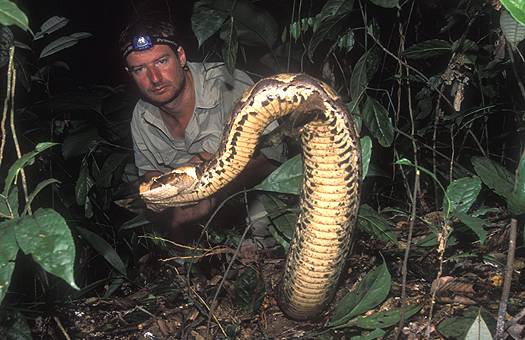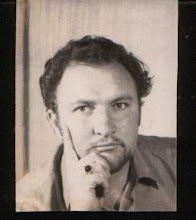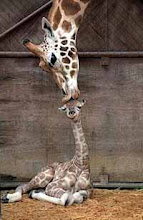
Hunting in the African bush is fraught with hazards. Uncanny things happen, things that the hunter cannot plan for, that can seriously affect not only his hunt and the pleasure of his stay in nature, but also his very life.
If hunting were as easy as a walk in the park, many more folks would be doing it, and the bush would be full of hunters chasing after the few animals trying to escape their efforts. Many people go off to the gun dealers and buy the rifle which he recommends, and take off into the bush in their 4x4 vehicle, license in hand and with all the latest camping gear. All they need to do is come across the animals stated on his license, haul out his new rifle and let fly. They see themselves posing with one foot on the neck of their victim and holding the rifle in an appropriate pose with the camera clicking so that a framed print can hang in the den to show their friends what a Nimrod they really are, and how much testosterone flows in their system.
Of course posing like that with a lovely Impala ram does not have exactly the same impact as a buffalo or even a lion, and ultimately having the head mounted and fixed over the fireplace in the den would supply hours of conversation when the cronies come visiting. Then the host can show off the trophies, and all the photos, and he would grow in stature and be the admiration of all the beautiful damsels in his circle of acquaintances.
Two friends, one an Italian named Giovanni, the other a Jewish fellow named Maurice each acquired an elephant license and made ready to hunt their elephants in the Gwembe Valley of the Zambezi River. They came into the business premises of Boet Oberholser who repaired and sold used Land Rovers. It was a Friday afternoon, and a few of us were gathered there having some beers in anticipation of a leisurely week end.
Giovanni was tall and broad with a shock of dark curly hair. He was friendly and laughed easily, and could put away copious amounts of beer. Maurice almost had the shape of a ball, as round as he was tall, with short legs and a premature bald head. He was full of restless energy and had quick nervous movements.
"We each have an elephant license." Maurice stated while quaffing his beer and surveying the gathering.
"Oh yes." George Lyon said. "Where are you going to hunt them?" George worked for the Game department as a tsetse control officer, and knew all the hunting areas intimately.
"In the Gwembe." Maurice retorted. "Do you know the area?" He knew that George had worked in that area quite recently, and it was a stupid question.
"Do you two clowns know the elephants of the Gwembe?" George looked at Giovanni pointedly. "Even the old hunter, Selous said that the Gwembe elephants were the most vicious that he ever encountered. And I know from working there that they are even more so now than in his day, especially if you encounter cows with calves.
"We have not been hunting since yesterday only." Maurice said with disdain. "Also we each have an adequate rifle therefore I cannot see what could go wrong." George nodded his head and finished his beer. He stood up and said, "Good luck with the hunt, come and show us the tusks next Friday." He walked out the door to his Land Rover.
Monday morning Boet phoned me. "Did you hear about Giovanni and Maurice? They went hunting on Saturday, and Giovanni tells me Maurice is still in bed sick. Apparently they encountered a small herd of elephant with a good bull accompanying them. Maurice decided to take the shot, and when the bull presented a good side shot He let him have it in the ear hole, and the bull went down like a sack of potatoes. The rest of the herd, instead of running off started to mill around till they got the pair's scent and then they all charged the two hunters en masse. All they could do was to turn and run. Well, you know that a man cannot hope to outrun a charging elephant and they could see that the herd was gaining on them, and even the small calves had their trunks at full extension till the tips were sharp as needles reaching for the hated men.
Fortunately they encountered a deep donga crossing their path, and the two dived into it and ran up the other side. The herd came up to the deep ditch, and started to run up and down trying to find a way through, and that gave the two hunters enough time to get away. They had to come back the next day to cut out the tusks, and Maurice was so pale around the gills that he went straight to bed when they got back to town."
Who would have expected the whole herd to charge at once, and had that ditch not been there, the two companions would not have outrun the herd, and they would have been trampled to tiny bits and pieces.
Insects too pose a definite hazard to the hunter. I had taken the long week end of the Rhodes and Founders holiday to accompany Dick and Henry to the Zambezi Valley for a Buffalo hunt, and we were well equipped and raring to go. We entered the valley floor, and had hardly gone two miles when a massive Roan Antelope bull ran across our path. It ran for about two hundred paces and stopped, standing broadside on. Dick jumped out of the driver's side, and took a snap shot at the Roan. We could hear the thump of the bullet striking, and the Roan turned around and ran off at full speed. I saw it disappearing behind a large Baobab tree, and did not see it emerge from the other side. Taking up my 30-06 rifle I ran towards the tree, and there about twenty yards away lay the Roan, stone dead. I had run past the tree so fast that I had failed to notice a black man lying next to the massive trunk on his back. Having cut the animal's throat to bleed it out, I happened to glance at the tree and saw the man lying there. Walking over I saw that he had been robbing a bee's nest in the trunk of the Baobab tree, as he had leant a sturdy sapling diagonally against the trunk and had carefully cut steps into it. His small native axe was still embedded into the wood of the baobab, and the bees were working at the opening he had chopped in the trunk. It was obvious to us that the man had seen the hive in the trunk of the tree, possibly guided by a honey guide bird, and when he started to chop the opening to enlarge it, the bees had attacked him. Swatting the insects he had lost his footing, and fallen and broken his neck.
We all stood around the body contemplating it and discussing what we should do next. To go back to Lusaka for the police meant a drive of about one hundred miles, and then we would be obliged to bring them back to the scene. Arriving there, the cops were sure to implicate us in the poor man's demise, which meant that our weekend would be over and the hunt a wash out. And we would have to bring them to the scene at our own expense. No, that just would not do! We then decided to leave him right there and continue with the hunt. The Roan was loaded and we continued on our way.
Monday, after a good hunt we came back along the same path. Arriving near the spot where the Roan was shot we decided to leave the vehicle in the road and walk down to the Baobab. The corpse was gone. Drag marks showed where a lion had picked it up and carried it off to a dense bush where it had been devoured. Nothing was left, only a bundle of clothes, some assegais, and the axe stuck in the tree. I climbed the sapling, and shining the beam of my torch down the hole, I could see many honey combs hanging in the hollow trunk. Some were black with age, and the honey was dripping down the inside of the trunk.
I have always been good at robbing bees' nests, and after smoking the insects to make them dizzy, I continued to take out the honey. We filled two five gallon cans full of honey combs and leaving some behind to encourage them to stay at the nest we drove home. For that poor man his quest had definitely proved hazardous indeed.

During one hunt, north of the Zambezi, a place called Chakwengwa, we had set up camp in the late afternoon, and as usual had collected a huge heap of firewood, and built a merry fire. I was designated camp cook, and soon had a meal cooking. Well, I needed to put some wood on the fire, and grasping a fairly thick log I tossed it on the fire. There was a crack in the log, and my hand encircled the crack. As it left my hand I felt a painful sting on the side of my palm, and as the log hit the fire a small red scorpion scuttled out of the crack and fell into the glowing coals, sizzled, squirmed and died. My hand and arm burnt like the fire itself, and soon became numb. It was my first scorpion sting and I was soon feverish with my heart palpitating like mad. The pain shot up my right arm and into my shoulder, and I became dizzy and disorientated. I had to lie down on my bed, and the only medcine I had to take were some aspirin. I was out of action for the whole weekend and that sting put paid to my hunt. The third day I could get up and move around a bit in camp. I have been stung a number of times since, and every time the experience was less painful as if I had built up an immunity, but that first experience will always be inscribed in my memory, and I can recall it as if it happened yesterday.
Most of our hunts took place during the winter months. This made the insect problem less troublesome as the deadliest enemy, the mosquito, was less likely to bite. But there were mozzies around, and they did bite, and the chances were good that the one which bit would be the malaria carrier, the deadly Anopheles mosquito. Most hunters contracted malaria at one time, and that could be deadly serious. Many hunters have died as a result of this animal's bite, and often they only know they have the disease after having left the bush, and they do not even know where they were bitten.
Another insect pest is the Tsetse fly. A little larger than the normal house fly, and of a brown grey coloring this pest bites with grim determination. It is so fast that the natives say that when it alights on your arm and bites, when you react by striking it, it leaves your arm and bites you on the palm of the hand cocked to strike it. I cannot vouch for that one, but will say that it reacts faster than any other insect I know of. During my time in the bush these pests loved to bite me, and there was hardly a spot on my body where they had not bitten me. The bite itches and burns, and there is nothing that will stop that burn. It has to fade away normally. The down side of the tsetse bite is that the pests carry the dreaded sleeping sickness which if not treated promptly leads to a lingering death.
Another hazard a hunter faces but never thinks about is snake bite. I know of a case where a hunter was stalking some kudu, and had to pass through a stand of long grass, and as he brushed through the thick grass he was bitten on the thigh by a black mamba. The snake struck him twice almost on the same spot, and he staggered back to the edge of the grass and collapsed. Before his companions could get him back to camp he was dead. They had the anti venom in camp, but the man was already dead by the time they could get at it. He had died within twenty minutes of being bitten.
Often we would make our beds on the ground, and cutting some long grass as a mattress we would spread the blanket over it and then sleep on top with another blanket as covering. I know of a few cases where when the blankets were folded after a night's rest, a thick puff adder emerged, having spent the night in the warmth of the sleeper's body. I have never heard of one being bitten by the unwelcome bed mate, but the thought of sleeping with a deadly snake is quite enough.

On one hunt up in the north western section of Zambia where the trees are tall with leaves right at the very top, we were hunting the elusive yellow backed duiker, and moving cautiously through the forest with a thick carpet of dried leaves on the ground. Slowly stalking, carefully putting one foot forward at a time, I suddenly saw the leaves move right where I would place my foot. Something in my subconscious warned me, and I did an about turn in mid stride. There was a dreaded Gaboon Viper, wound up like a coiled spring, ready to strike.

The color pattern of that snake was so camouflaged that it was almost invisible among the browns and reds of the fallen leaves. It was a monster of about three feet long, and as thick as my calf. The head was as large as my fist, with fangs a good three inches long. Had it sunk those fangs into my leg I would have died of fright before the venom had time to take effect. In those days there was no anti venom available for this snake, and a bite would have proven fatal. I still turn cold with goose flesh when I think of that incident.
Many Native hunters go off into the bush and never return. The people in the villages do not go out to look for them as they know that a search would prove fruitless. There are just too many dangers confronting the lone hunter, and a disappearance is merely written off as being lost. Life in the village goes its normal course and the hunter is soon forgotten.













